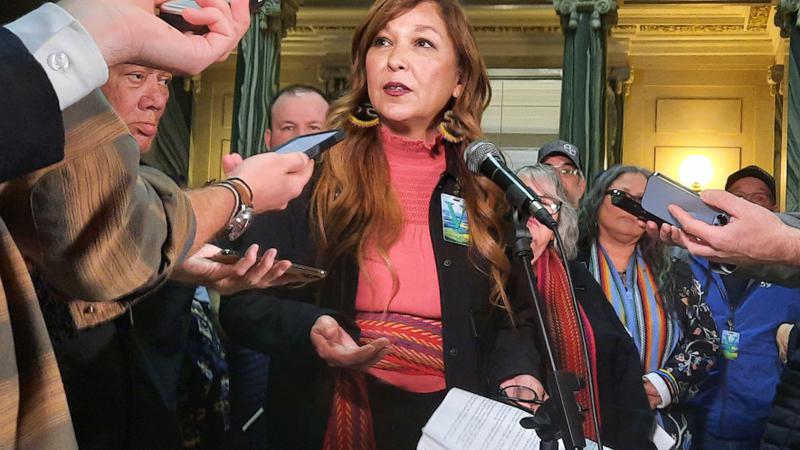
Métis, First Nation groups oppose Sask. First Act as it passes third reading
The galleries at the Saskatchewan Legislature were full of people on their feet Thursday morning, standing to support the Official Opposition as it voted ‘no’ on Bill 88’s third reading.
The bill, also known as the Saskatchewan First Act, passed with support from the government side of the assembly and will become law in a few weeks with the signature of the lieutenant-governor.
First Nations and Métis leaders from across the province travelled to the Legislature to be there for the vote Thursday, frustrated over what they see as a lack of consultation on the bill and a concern over what the province “affirming” its exclusive jurisdiction over natural resources might mean for them and their treaty rights.
“This bill potentially could create such an impact on our rights — our hunting, our gathering, our ceremonies. All of those things will be greatly diminished (and) disrespected,” said Michelle LeClair, vice-president of the Métis Nation-Saskatchewan.

